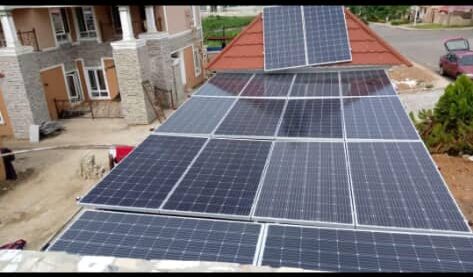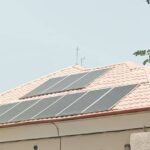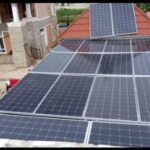As the world increasingly shifts toward renewable energy solutions, solar energy stands out as one of the most promising and sustainable sources of power. If you’ve ever wondered about how solar energy works, its benefits, or how you can incorporate it into your daily life, this guide has you covered. Let’s explore everything you need to know about solar energy.
What is Solar Energy?
Solar energy is the energy harnessed from the sun’s rays. The process involves capturing sunlight using solar panels, which convert sunlight into electricity through a process called the photovoltaic (PV) effect. These panels are typically made of semiconductor materials like silicon, which absorb sunlight and convert it into usable electrical power.
How Do Solar Panels Work?
Solar panels consist of multiple solar cells that work together to generate electricity. When sunlight hits these solar cells, it excites the electrons within the semiconductor material, causing them to flow and create an electric current. This current is then directed to an inverter, which converts it into alternating current (AC) electricity that powers your home or business.
Types of Solar Energy Systems
There are several types of solar energy systems, depending on how you intend to use them:
Grid-Tied Systems: These systems are connected to the public electricity grid. Excess energy generated during the day can be fed back into the grid, often earning you credits through net metering.
Off-Grid Systems: These systems are not connected to the grid, making them ideal for remote locations. They require battery storage to keep your home powered when the sun isn’t shining.
Hybrid Systems: Combining both grid-tied and off-grid systems, hybrid solar energy systems offer the best of both worlds. They allow you to store excess energy while still being connected to the grid.
Benefits of Solar Energy
Environmentally Friendly: Solar energy is clean, producing no greenhouse gases or pollution. By switching to solar, you can significantly reduce your carbon footprint.
Cost Savings: Once installed, solar panels can dramatically lower your electricity bills. Many areas also offer incentives, rebates, and tax credits to help reduce the upfront cost of installation.
Energy Independence: Solar energy provides the ability to generate your own power, reducing reliance on traditional fossil fuels and increasing energy security.
Low Maintenance: Solar panels are durable and require minimal maintenance. With proper installation and care, they can last for 25 years or more.
How to Install Solar Energy Systems
Site Assessment: A professional installer will assess your home or building to determine the optimal location for solar panels based on factors such as roof size, angle, and exposure to sunlight.
System Design: The installer will design a system tailored to your energy needs. This includes selecting the appropriate size, type of panels, and inverter system.
Installation: The panels will be mounted, wiring will be installed, and the system will be connected to your home’s electrical system.
Activation: Once the system is fully installed, it will be activated, and you can start generating clean, renewable energy.
Solar Energy Myths Debunked
Solar Panels Are Too Expensive: While the initial cost of solar panel installation can seem high, the long-term savings on electricity bills, plus available government incentives, make solar energy a wise investment.
Solar Isn’t Reliable: Solar panels work on cloudy days and even in less sunny climates. Battery storage systems also allow you to store excess energy for use at night or during periods of low sunlight.
Solar Panels Require a Lot of Maintenance: Solar panels have no moving parts, so maintenance is minimal. Regular cleaning and occasional checks are all that’s needed.
Is Solar Energy Right for You?
Whether you’re looking to lower your electricity bills, reduce your carbon footprint, or increase your energy independence, solar energy is a viable solution. To determine if solar is the right choice for your home or business, consider factors like the amount of sunlight your location receives, your energy needs, and your budget.
Final Thoughts
The transition to solar energy is not just a trend; it’s a powerful shift toward sustainable living. As technology advances, solar energy systems become more efficient and affordable, making it easier for individuals and businesses to adopt solar power. At D Legendary Energy Concept, we’re committed to helping you understand and harness the power of the sun. If you’re ready to explore solar energy solutions, we’re here to guide you every step of the way.
It is a long established fact that a reader will be distracted by the readable content of a page when looking at its layout. The point of using Lorem Ipsum is that it has a more-or-less normal distribution of letters, as opposed to using ‘Content here, content here’, making it look like readable English.





Leave a comment